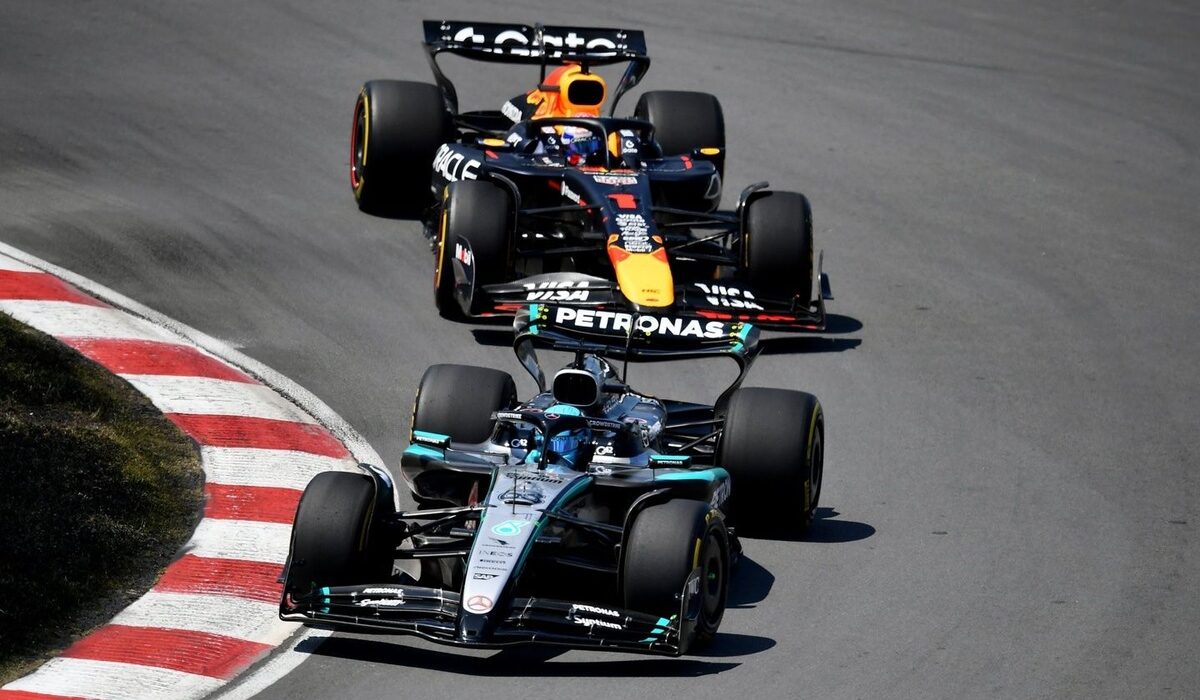Red Bull’s decision to appeal the result of the Canadian Grand Prix drew widespread criticism, with Mercedes team principal Toto Wolff branding it “petty” and “embarrassing.” The ensuing delay in confirming the race result drew negative reactions from both fans and the media alike.
It took more than five and a half hours for George Russell’s victory to be officially confirmed by the FIA, after he was cleared of any wrongdoing by the stewards.
By that point, Max Verstappen had already left Canadian airspace – choosing not to wait and see if he might inherit the win from the Brit.
Red Bull’s protest centred on claims that Russell had driven “erratically” behind the safety car and that his heavy braking amounted to “unsportsmanlike behaviour.” Both arguments were dismissed by the stewards.
However, it was the delay in reaching that decision that was the main problem, and also raises questions about the process of protesting a race result.
Max Verstappen, Red Bull Racing
Photo by: Sam Bloxham / Motorsport Images
Wolff criticised the timing of the protest, telling Sky Sports at the New York premiere of the F1 movie: “It was two hours before [Red Bull] launched the protest, so that was their doing. It’s so petty and so small. They come up with some weird clauses – what they call clauses. I guess the FIA needs to look at that because it was so far-fetched, it got rejected.”
Unsurprisingly, Red Bull team principal Christian Horner defended the protest. Speaking to the same outlet, he said: “It’s a team’s right to do so. You have the ability to put it in front of the stewards, and that’s what we chose to do. Absolutely no regrets.”
Who is at Fault?
Teams are entitled to protest the outcome of a race if they believe a sporting regulation has been violated or that new evidence was missed by the stewards.
Horner revealed that the appeal cost €2,000 (£1,700) and admitted he was surprised Russell’s driving wasn’t flagged by the stewards initially.
This also wasn’t Red Bull’s first protest of the season. During May’s Miami Grand Prix, Russell – who once again finished ahead of Verstappen – was accused of failing to slow under yellow flags. Red Bull were making a point and felt Russell had not slowed sufficiently, with Horner saying they were simply seeking clarity of the regulations.
That claim, too, was dismissed.
Christian Horner, Red Bull Racing
Photo by: Zak Mauger / Motorsport Images
While there’s no suggestion that Red Bull is deliberately targeting Russell, who has had a series of tense exchanges with Verstappen in recent years, the repeated protests do raise questions about the current appeal process in general.
The €2,000 cost of filing a protest is not a deterrent, should a team wish to make a point or seek clarification over a regulation. After all, there are other mechanisms for this to be raised that would not delay the outcome of a race result.
But if that fee were increased and counted toward the cost cap – it could discourage teams from lodging speculative appeals without solid evidence.
A higher financial burden would likely ensure only well-founded protests are brought forward, potentially speeding up the process for the stewards and avoiding unnecessary delays.
A problem of resources
In the case of Canada, the situation was further complicated by the sheer volume of post-race investigations.
According to the rules, incidents are reviewed in the order they are reported. Red Bull’s protest, submitted two hours after the chequered flag, was placed last in the queue.
Esteban Ocon, Haas F1 Team, Carlos Sainz, Williams, Gabriel Bortoleto, Sauber
Photo by: James Sutton / Motorsport Images via Getty Images
Before reaching Russell’s case, the stewards had to examine incidents involving Ollie Bearman, Lando Norris, and Esteban Ocon – followed by seven separate alleged infringements of the safety car procedure.
It was a frustrating experience for everyone. Fans at the circuit left without clarity, while many in Europe went to bed not knowing who had actually won the race. It was not a good look for a sport that is trying to grow its appeal around the world.
Maybe there is scope for race stewards to delegate, meaning that the Remote Operations Centre in Geneva could cycle through the lesser offences using all the technology at its disposal.
That would free up those stewards at the track to oversee Red Bull’s protest and ultimately result in quicker decision-making.
Another possibility would be to increase the number of stewards, something the FIA is already working on as it looks to increase its pool of qualified race officials. Interestingly, in Canada, officials at the race had more resources at their disposal as the FIA had four stewards adjudicating the race rather than the usual three. The increase in stewards is being trialled at six raced this year, including at Singapore and Brazil later this season.
Whatever the solution, it is important that the lengthy delay in confirming the race result is addressed as a matter of urgency, for it would be bad news for everyone if this became common place.

